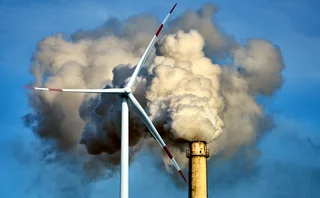UK Energy Review
The much-anticipated UK government's Energy Review published in July gave a boost to investment in renewable energy, showed increased government support for carbon trading, and eased the path towards new nuclear build. However, its lack of decisiveness has left many market participants with a sense of anticlimax.
"It's been a little bit of a disappointment, insofar that it has put forward few concrete plans," says Chris Bowden, chief executive of UK-based energy procurement and risk management
More on Energy transition
CRO interview: Brett Humphreys
Brett Humphreys is head of risk management at environmental markets specialist Karbone. He talks to Energy Risk about the challenges of modelling outcomes in unpredictable times and how he’s approaching the risks at the top of his risk register
High risk and volatility require new risk management approaches
Energy leaders warn fast-rising geopolitical, market and infrastructure risks demand new strategies, AI adoption and stronger risk culture
Uncertainty causes rethink on clean energy investment
Waning enthusiasm for net-zero pledges, environmental policy shifts, funding cuts and US tariffs are causing clean energy investors to retreat
Data and analytics firm of the year: LSEG Data & Analytics
Energy Risk Awards 2025: Firm’s vast datasets and unique analytics deliver actionable insights into energy transition trends
Sustainable fuels house of the year: Anew Climate
Energy Risk awards 2025: Environmental firm guides clients through regulatory flux
Corporates keep the faith on net-zero goal
Large corporates’ energy transition includes trading and risk management in energy and commodities markets
Environmental products house of the year: ENGIE
Renewable energy and the liberalisation of power markets in Apac present significant long-term growth opportunities, with ENGIE driving change in energy transition
ENGIE empowers clients globally to decarbonise and address the energy transition
In recent months, energy market participants have faced extreme volatility, soaring energy prices and supply disruptions following Russia’s 2022 invasion of Ukraine. At the same time, they have needed to identify and mitigate the longer-term risks of the…







